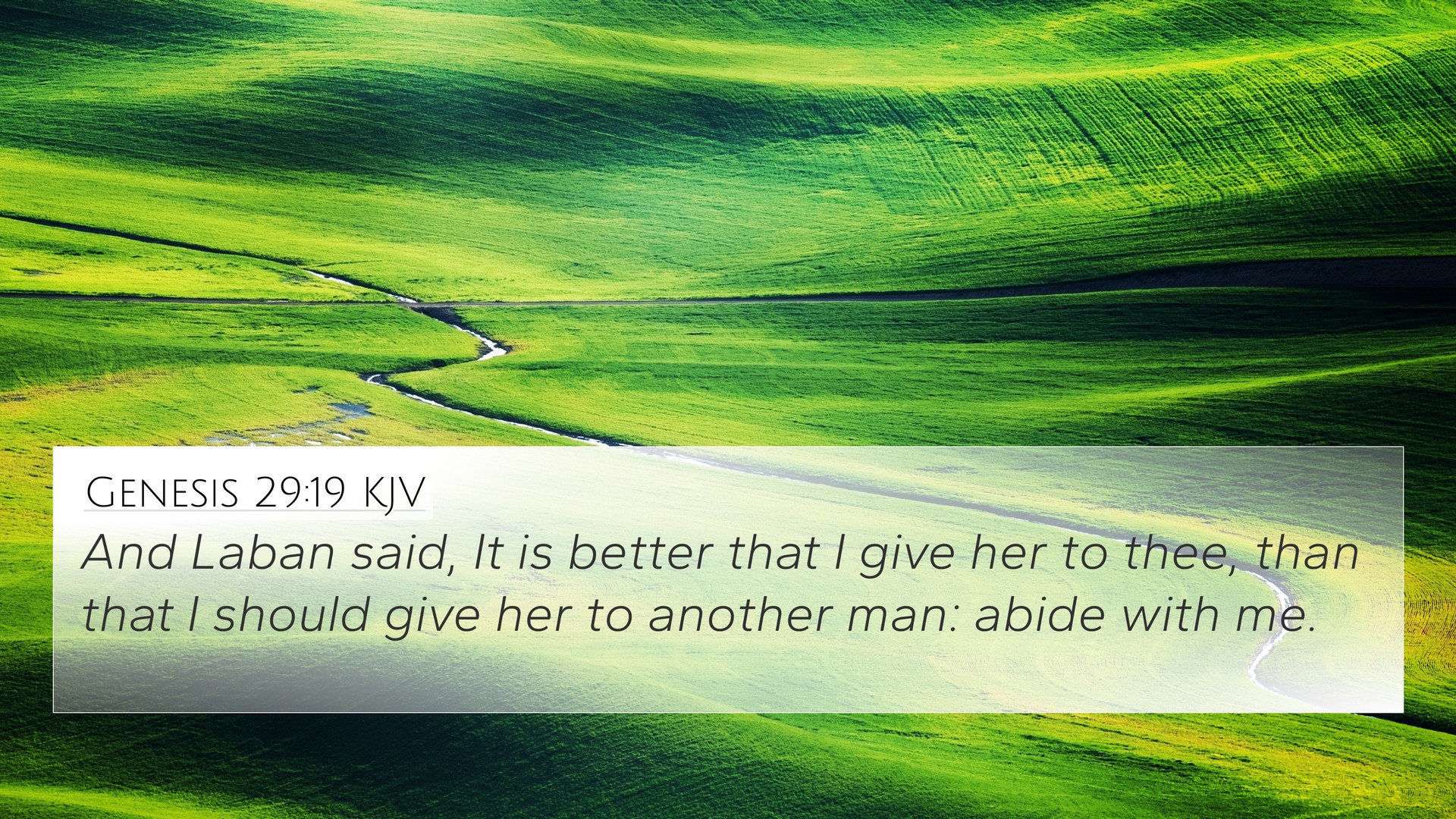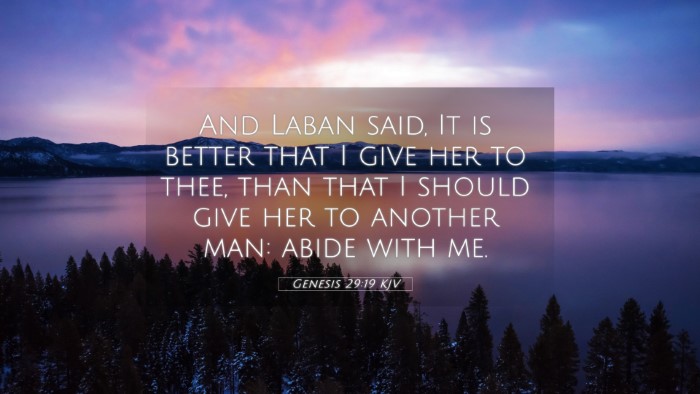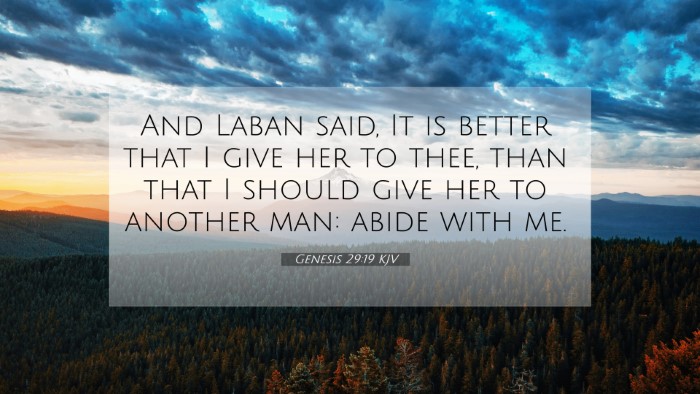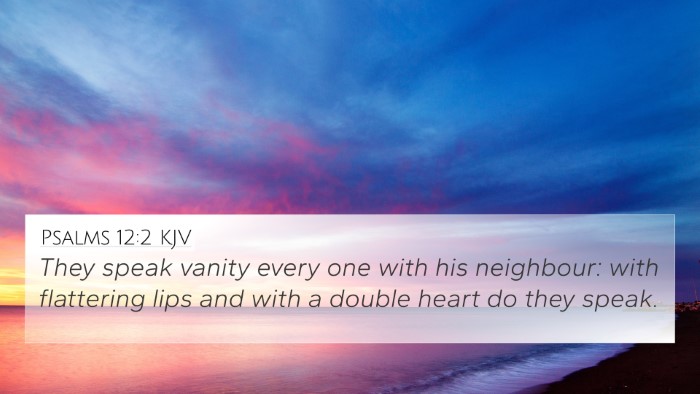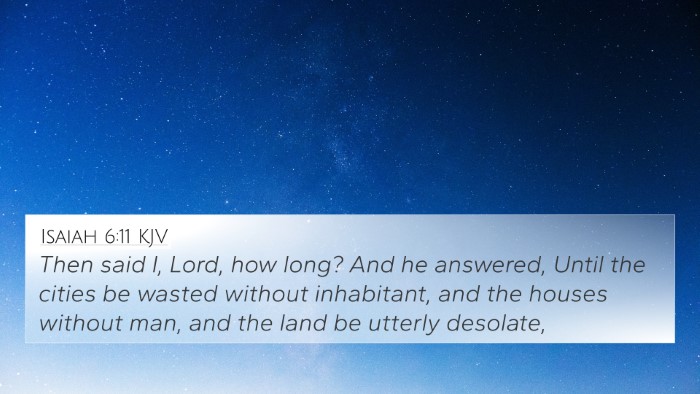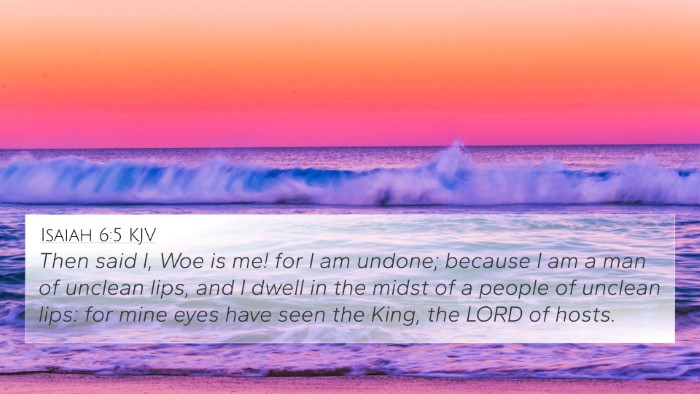Interpretation of Genesis 29:19
Genesis 29:19 reads: "And Laban said, It is better that I give her to you than that I should give her to another man; stay with me." This verse is pivotal in understanding the dynamics of Laban’s agreements and the unfolding narrative of Jacob's life.
Contextual Background
To fully grasp Genesis 29:19, one must consider its surrounding context. Jacob had fled from his brother Esau and sought refuge with Laban, his mother's brother. This interaction not only pertains to marriage but also highlights themes of family loyalty, deception, and the complexities of human relationships.
Thematic Analysis
- Family Dynamics: Laban’s decision reflects the importance of family ties in the ancient Near East. He is prioritizing familial bonds over personal or commercial interests.
- Marriage Customs: The arrangement reflects the cultural norms of the time regarding marriage and the role of father figures in giving away daughters.
- Loyalty and Deception: The verse sets the scene for the ensuing drama where Jacob’s loyalty and the deception he encounters are central themes.
Commentary Insights
Matthew Henry: Henry emphasizes that Laban's willingness to give Rachel to Jacob signifies not only the value of Rachel but also the economic and emotional ties within familial arrangements during that time. He notes that Laban’s motives are dual-faceted, blending genuine affection for Jacob with underlying self-interest.
Albert Barnes: Barnes adds the perspective that Laban’s statement offers a glimpse into the cultural practices of that period, noting how such negotiations regarding marriage were often arranged in accordance with mutual benefit. He reminds readers that Laban's decision prompts Jacob's initial emotional investment in Rachel, setting the stage for his future struggles.
Adam Clarke: Clarke points out the implicit tension in Laban’s statement. The phrase "better that I give her to you than to another" not only suggests a preferential treatment but may also hint at Laban's awareness of Jacob's capabilities, hinting at a potential manipulation of Jacob's affections for future gain.
Cross-References
Genesis 29:19 is interconnected with several other biblical texts, enhancing its understanding:
- Genesis 24:58: The role of family in marriage arrangements.
- Genesis 29:20: Jacob's love and commitment toward Rachel.
- Genesis 31:14-15: The relationships and dynamics in Laban's family.
- Genesis 36:2-3: Insights into kinship ties and marriage in the line of Esau.
- Ruth 1:16: The theme of loyalty within familial bonds.
- Exodus 2:21: Seeing similar patterns of familial protection within marriage.
- 1 Corinthians 7:39: New Testament perspectives on marriage and familial duties.
Connections Between Bible Verses
The linkages created through cross-referencing these verses provide a broader narrative of God's guidance in relationships:
- Linking Bible Scriptures: Such verses reflect the importance of family while portraying the complexity and fidelity expected in marriages and cultural obligations.
- Comparative Bible Verse Analysis: Examining Laban's agreements with Jacob can shed light on similar themes in both Old and New Testament teachings about personal sacrifice and loyalty.
Bible Verse Parallels
Noteworthy parallels with Genesis 29:19 include:
- Matthew 19:6: The divine institution of marriage reflects the sanctity of familial arrangements.
- Ephesians 5:25: Further elaboration on love and commitment in the context of marriage from a New Testament perspective.
Applying the Insights
These commentaries and analyses present profound insights into how we can view familial relationships and commitments through a biblical lens. Engaging with such texts can aid in recognizing the continual dialogue between the Old and New Testaments regarding marriage and family.
Tools for Bible Cross-Referencing
- Bible Concordance: Useful in identifying related verses across the scriptures.
- Bible Cross-Reference Guide: A resource that eases the journey of understanding interrelated biblical themes.
- Cross-Reference Bible Study: A valuable method for exploring deeper connections within scripture.
Conclusion
Genesis 29:19 unlocks significant lessons about relationships, loyalty, and the influential dynamics of family. Through the insights of various public domain commentaries, readers are invited to explore the intricate narratives interwoven throughout the Bible. Engaging with cross-referencing tools allows for a richer comprehension of biblical themes, leading to a more profound understanding of how these ancient texts apply to contemporary life.
